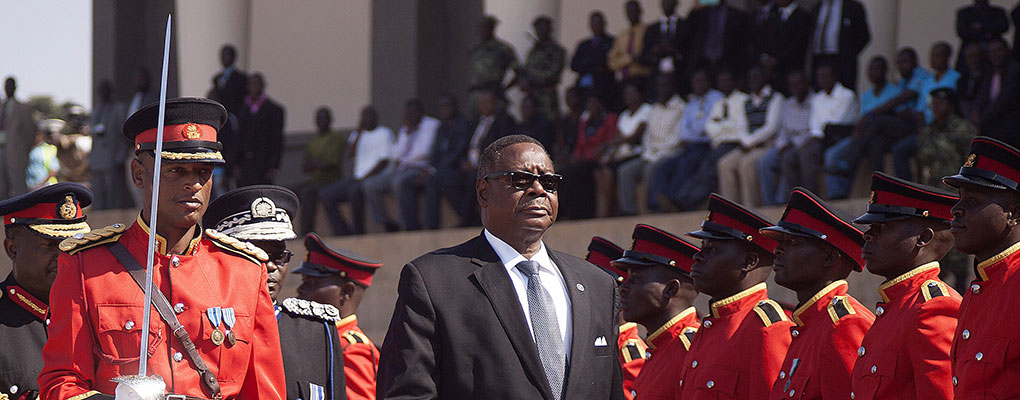
Malawi’s systematic decline in foreign exchange reserves has been a prevailing theme for years now, despite efforts from various parties to maintain the balance between supply and demand. Add to that a rapidly weakening kwacha, which has fallen by more than four percent against the US dollar since the end of August, and the nation could be in for intense hardships in the not too distant future.
Although the country’s foreign reserve levels in the first half of 2014 increased by 72.9 percent compared to the same period last year, this progress was not enough to meet the recommended import cover of three months. Reserves currently stand at 2.5 months, but KPMG estimates a much lower import cover due to the susceptibility of Malawi’s main exports – namely tobacco – to weather conditions.
It is increasingly evident that the nation simply cannot rely on just one market sector for over half of its total foreign exports
At present, tobacco is Malawi’s main foreign exchange earner, making up a massive 53 percent of total exports. However, relying so heavily on a commodity-based sector makes the economy incredibly susceptible to market volatility and puts it in a vulnerable position. At the height of the tobacco season the kwacha was worth MK380 against the USD. Given that the tobacco season runs only from March to August and the commodity is the main driver of the kwacha appreciation, exactly how the nation will boost its currency’s value is a growing concern.
It is increasingly evident that the nation simply cannot rely on just one market sector for over half of its total foreign exports. However, if a more diverse range of exports was produced, reserves could be built up again, and the economy would be less vulnerable to the potential instability of one industry – so when tobacco growers have a slow year, it does not mean the entire nation has a slow year. At present, Malawi is a highly import-dependent economy – though officials insist that all it needs is time to produce more goods for export.
Counter-intuitively, the weak kwacha could prevent the nation from increasing and diversifying its exports, as the price of foreign imports required for the production process are rendered more expensive. Charles Chuka, Governor of the Reserve Bank of Malawi told The Nyasa Times: “We need a bit of time to start producing more exports. So, interest rates remain so high and until we have stabilised the economy and interest rates come down, diversification of exports will still be a problem. So, we have more demand for forex than we have supply.”
As Malawi also depends heavily on international aid, the biggest obstacle the country has faced is undoubtedly the prevailing ‘cash-gate’ scandal, which has seen the UK, its largest donor, suspend payments until the aid reaches those it is intended for. The country further suffers from an exceptionally volatile interest rate, which has averaged 26.02 percent since 2001 and climbed as high as 75.53 percent in February 2001.
The biggest obstacle the country has faced is undoubtedly the prevailing ‘cash-gate’ scandal
“Malawi is a top exporter of burley tobacco and as such has been affected by the global slowdown in commodities demand,” said Alfonso Esparza, Senior Currency Strategist at Oanda. “Oversupply from the biggest agricultural powerhouses has hit all producers as prices have gone down. Without that income the economy depends on foreign aid, which has been frozen as the international community awaits deep reforms to eradicate corruption.”
Attempts have been made to rectify the problem. In 2012, an African multilateral bank extended a $40m credit facility to a Malawi tobacco company as part of a currency swap programme to ease the pressure caused by forex shortages. However the country’s ongoing forex woes are an indication that such an initiative in isolation will not be enough.
For one, significant investment in the farming and production industries is required. Farmers Union of Malawi president Felix Jumbe told Export Development Fund in 2013 that if Malawi could produce and sell one million tonnes each of beans, groundnuts, soya and pigeon peas to an international market, the country could replenish its foreign exchange reserves in just one year.
Malawi desperately needs to build reserves back up for obvious reasons, but perhaps most significant is proving to foreign investors and donors alike that the corruption seen in the past will remain in the past. For the time being, international aid is not a sustainable solution to foreign exchange woes, and the nation must prove that it has more to offer the world than just tobacco.


